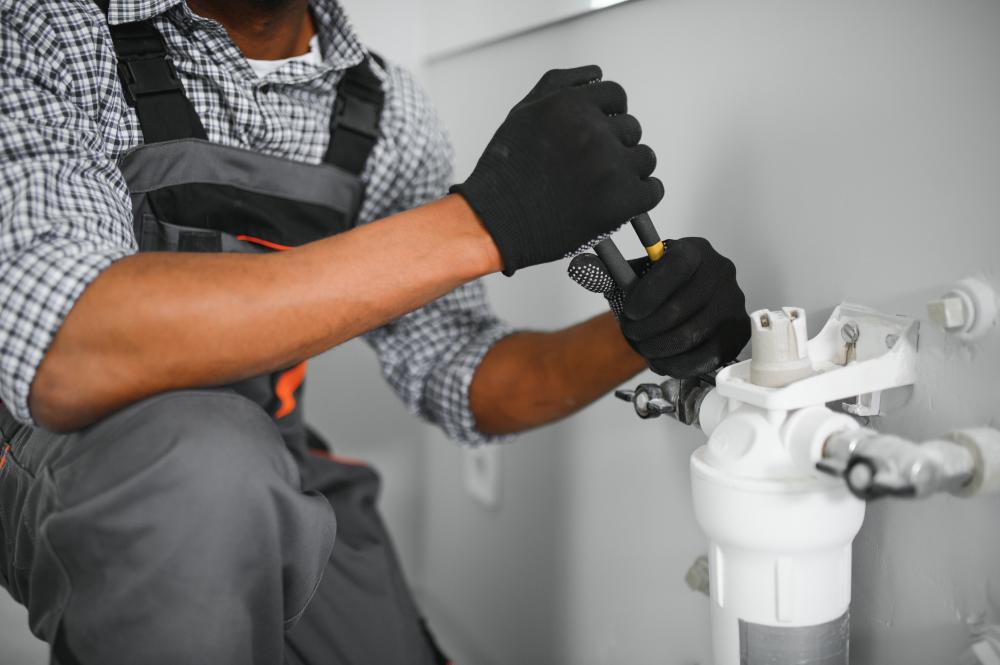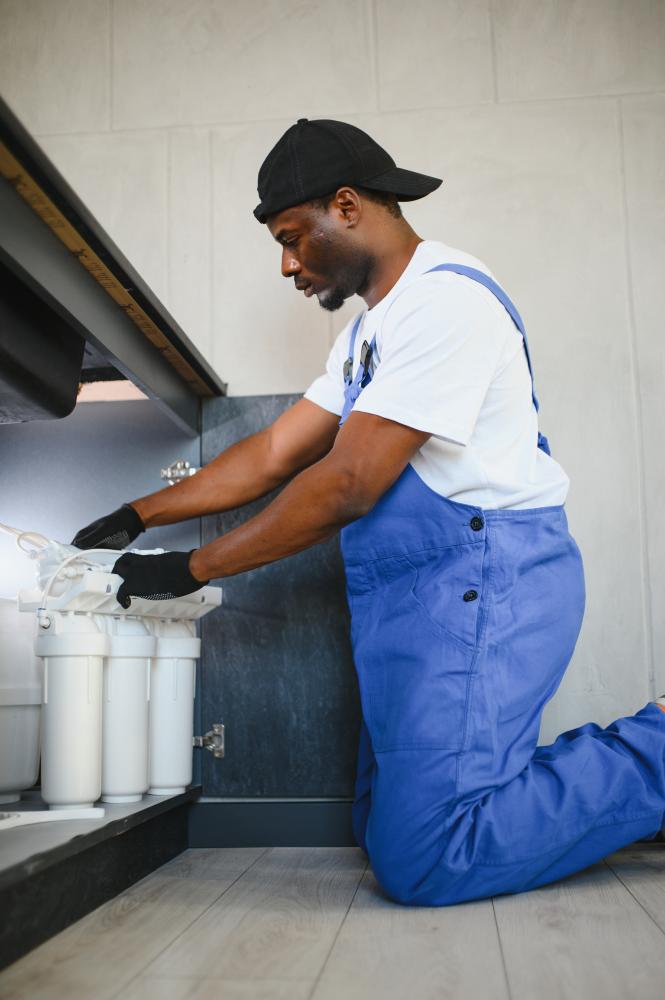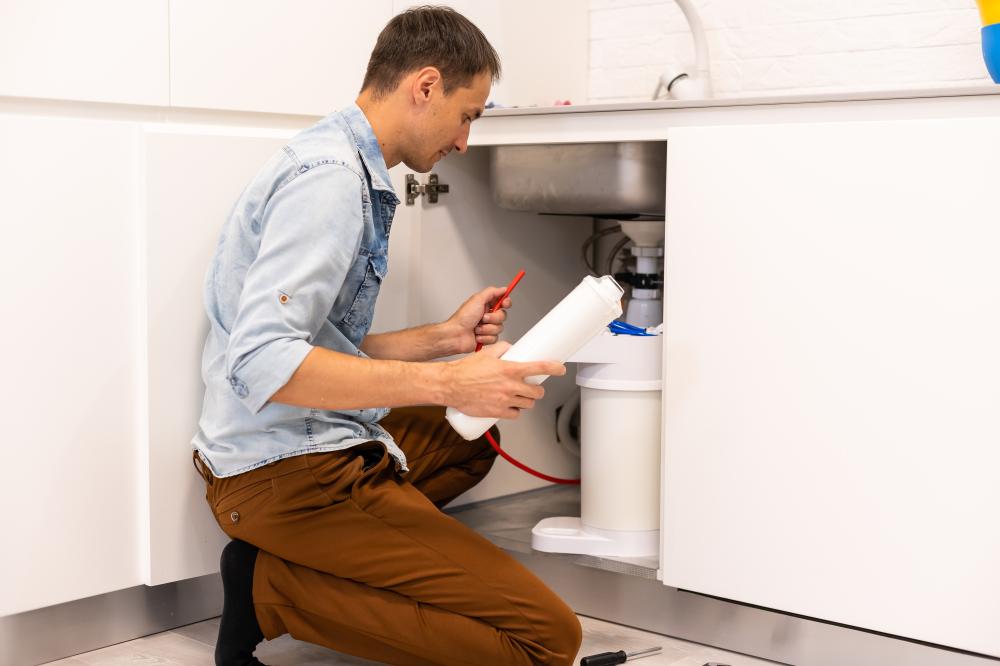Water Filtration Systems Home

Exploring Water Filtration Systems for Home
When it comes to water filtration systems home, homeowners are spoiled for choice with a variety of options that cater to different needs and preferences. As someone who has been involved with Home Alliance for years, I've seen firsthand how crucial these systems can be for ensuring clean and safe drinking water. From simple faucet filters to advanced reverse osmosis units, each system offers a unique set of benefits. Choosing the right system can sometimes feel overwhelming, but understanding the core features of each can simplify the decision-making process.
Faucet-mounted and pitcher filters are among the most popular choices due to their affordability and ease of use. They are a great starting point for individuals seeking a quick solution to remove contaminants like chlorine and lead. For those looking for a more comprehensive approach, under-sink and whole-house systems provide a broader scope of filtration, tackling issues such as sediment and bacteria across various water sources within the home. Despite the initial investment, these systems can often offer greater peace of mind by ensuring water purity throughout the entire household.
Key Considerations When Choosing a System
Quality of Water Source
The first step in selecting a water filtration system is understanding the quality of your water source. Municipal water supplies are generally safe but can still carry residue and chemicals that impact taste and safety. In contrast, well water may contain natural contaminants like nitrates and heavy metals, necessitating more robust filtration solutions. A water quality test is a wise investment to guide you in choosing the most appropriate system for your household needs.
Capacity and Usage
When evaluating water filtration systems home, considering the capacity and specific usage is essential. A bustling family with significant water needs will require a system that accommodates high usage without frequent filter replacements. Whole-house systems are particularly advantageous, offering consistent performance across all household outlets, ensuring that every shower, faucet, and appliance receives filtered water without strain or delay.
Installation and Maintenance
Ease of installation and the level of maintenance required are critical factors that influence many homeowners' decisions. While some systems like countertop filters require minimal effort to set up, others, such as under-sink or whole-house systems, might need professional installation to optimize performance. From my experience, Home Alliance always emphasizes the importance of regular maintenance checks, as proper upkeep can extend the lifespan of the filters and prevent clogs or inefficiencies.
Personal Insights & Anecdotes from the Field
Working in the HVAC and plumbing industry offers me a unique perspective on how water filtration systems home significantly impact daily life. I vividly recall a project with a family who noticed drastic improvements in their health and home maintenance expenses after installing a comprehensive whole-house filtration system. They found their appliances ran more efficiently, dishes were cleaner, and even skin irritations caused by hard water had diminished. Such transformations underscore the value of investing in a system tailored to a home's specific needs.
Engaging with homeowners regularly, I find that many are initially concerned with upfront costs but are ultimately swayed by the long-term savings and health benefits. An acquaintance of mine witnessed a notable reduction in bottled water purchases after installing a sophisticated under-sink system. Stories like these illustrate the profound impact that the right water filtration system can have, shaping not just water quality, but the overall quality of life.
Hidden Gems and Uncommon Solutions
While discussing water filtration systems home, one cannot overlook the innovative and often overlooked solutions such as UV purification and ion exchange filters. These methods, though not as commonly discussed as their counterparts, offer specialized filtration tailored to distinct needs. UV purification is particularly effective against bacteria and viruses, providing an additional layer of protection for those concerned with biological contaminants.
Ion exchange systems, on the other hand, excel in treating water hardness by replacing calcium and magnesium ions with sodium ions, an often-cited concern in areas with hard water. Such systems can prevent scale buildup in plumbing, extending the lifespan of home appliances. By embracing these lesser-known options, homeowners can address specific water quality issues that standard filters might not adequately tackle.
As someone deeply committed to improving home living standards through Home Alliance, I believe exploring the full spectrum of water filtration options empowers homeowners to make informed decisions. Balancing personal preferences with practical needs ensures that every family can enjoy pure, safe, and delicious water.
The Importance of Regular Inspections
In the world of home maintenance, few tasks are as crucial yet often overlooked as plumbing and sewer inspection. At Home Alliance, with our extensive experience, we've seen firsthand how these inspections can prevent minor issues from ballooning into costly repairs. Regular inspections of plumbing systems allow homeowners to identify potential problems early, such as leaks and blockages, which can save significant time, money, and stress down the line.
Engaging in routine plumbing and sewer inspection is like giving your home a health check-up. These inspections help reveal hidden issues that may not be immediately apparent but could lead to severe damage if left unattended. For example, a small leak in your pipes can escalate into a major water damage issue, potentially affecting your walls, flooring, and even the foundation of your house.
Techniques and Tools of the Trade
Plumbing and sewer inspection involves a variety of techniques and tools designed to thoroughly examine the infrastructure of your home's water systems. At Home Alliance, we've incorporated state-of-the-art technology to enhance the precision of our inspections. One of the most effective methods utilized is video camera inspection, which allows technicians to view the interior surfaces of pipes and sewer lines in real-time, identifying blockages or structural issues.
An anecdote from my early days in the industry still resonates with me. A client had persistent clogs, and it wasn't until we used camera inspection that we discovered tree roots had penetrated the sewer line, a common yet often unnoticed problem. This technique, along with other tools like hydro-jetting and pressure testing, ensures a comprehensive assessment of your plumbing system's health.
Another vital aspect of plumbing and sewer inspection is the use of leak detection technology. Acoustic sensors can pinpoint even the smallest water leaks by identifying anomalies in sound frequency. By integrating these advanced tools, homeowners can rest easy knowing that their plumbing systems are being maintained with precision and care.
Benefits Beyond Prevention
What many may not realize is that plumbing and sewer inspection offers benefits that extend beyond mere prevention. For one, they can significantly improve water efficiency within the home. Identifying and repairing leaks reduces water waste and can lead to considerable savings on utility bills. In today's climate-conscious society, addressing water waste through regular inspections is not only good for your wallet but also beneficial for the environment.
Moreover, addressing plumbing issues promptly enhances the longevity of your home's systems. Just like regular maintenance on an HVAC system can extend its lifespan, consistent attention to plumbing ensures that pipes, faucets, and fixtures remain in excellent condition for years to come. This foresight not only safeguards your existing plumbing infrastructure but also adds to the overall value of your property.
At Home Alliance, we pride ourselves on providing customers with peace of mind that comes from knowing their homes are in top condition. Plumbing and sewer inspection is a foundational part of this assurance, acting as a preventive measure that supports many other elements of home maintenance. So, whether it's time for a routine check or you suspect an issue, reach out and let us handle the inspection with the expertise and dedication that defines our service.

What is the average cost of a whole home water filtration system?
The cost of whole home water filtration systems near me can vary significantly based on the type and complexity of the system you choose. On average, you might expect to spend anywhere from $500 to $3,000 for a good quality system, with professional installation costs possibly adding another $200 to $500. However, if you opt for more advanced systems like reverse osmosis or UV purification, the price can be higher. I recall a client who was initially hesitant about the investment but later found the health benefits and reduction in bottled water purchases justified the expense. Remember, a quality system tailored to your home's needs can be a wise investment in the long-term health of your household.
Is a whole-house water filtration system worth it?
Absolutely, investing in a whole-house water filtration system can be worth it for many households, especially those with specific water quality concerns like hard water, high chlorine levels, or contaminants specific to well water. One family I worked with experienced a marked improvement not just in their water quality, but also in their overall health and home maintenance. Appliances ran more efficiently, their skin was less irritated, and they noticed a significant difference in their water's taste. While the initial cost might seem steep, the system often pays for itself over time through savings on bottled water and increased appliance longevity. Think about your family's unique needs and perhaps conduct a water quality test to make an informed decision.
What is the difference between a water purifier and a water filtration system?
The terms "water purifier" and "water filtration system" are often used interchangeably, but they are not the same. A water filtration system primarily removes impurities from water by employing physical barriers, chemical processes, or biological processes. It targets contaminants like chlorine, lead, and sediment. A purifier, however, takes this a step further by also targeting biological contaminants such as bacteria and viruses, often through methods like UV filtration or advanced reverse osmosis. It's like choosing between a basic and deluxe car wash. Both clean your car, but the deluxe wash offers additional services for a more thorough clean. Consider what impurities are most concerning for you when making your choice.
How much does a Culligan whole-house water filtration system cost?
Culligan offers a range of whole-house water filtration systems, and the cost can vary widely depending on the specific model and features. Typically, you could expect prices to start around $1,000 and go up to $5,000 or more. One customer I worked with opted for a Culligan system due to its reputable brand and was delighted with the service and performance. Keep in mind that while Culligan systems might seem pricey upfront, the brand is known for reliability and support, which can save costs and stress in the long run. Always get a detailed quote and discuss your specific needs with a professional to ensure you're getting the best system for your situation.
Why is regular plumbing and sewer inspection important?
Regular plumbing and sewer inspections are crucial because they help identify potential issues before they turn into costly repairs. Imagine discovering a small leak in your pipes before it causes water damage to your walls and floors. One client of ours thought they had an insignificant issue but discovered through inspection that tree roots had penetrated their sewer line, a common problem. By keeping up with these inspections, you not only save money but also gain peace of mind knowing your home's plumbing is in good health. Moreover, timely repairs improve water efficiency and can extend the life of your appliances. Next time you're scheduling home maintenance, consider adding a plumbing inspection to your checklist.
Resources
- Environmental Protection Agency (EPA) - The EPA provides valuable information on water quality, regulations, and the importance of water filtration systems.
- Centers for Disease Control and Prevention (CDC) - The CDC offers insights on waterborne diseases and the role of water filtration in safeguarding public health.
- Water Quality Association (WQA) - The WQA is a trusted source for water treatment professionals and consumers seeking information on water quality and filtration solutions.
- NSF International - NSF International provides certification for water filtration products, ensuring they meet quality and safety standards.
- World Health Organization (WHO) - The WHO offers global insights on water quality and the importance of clean water for public health.


